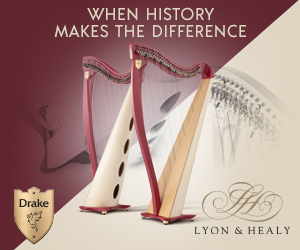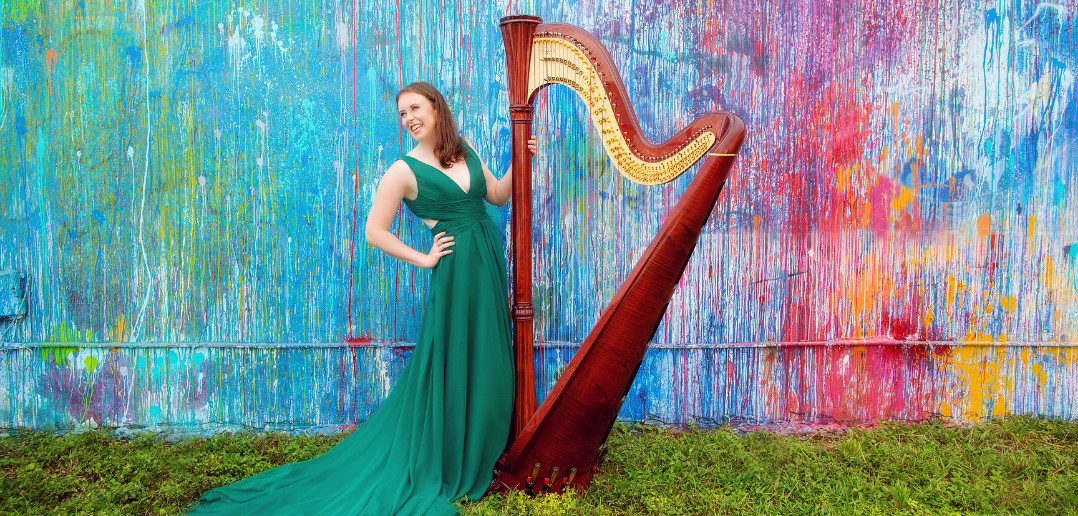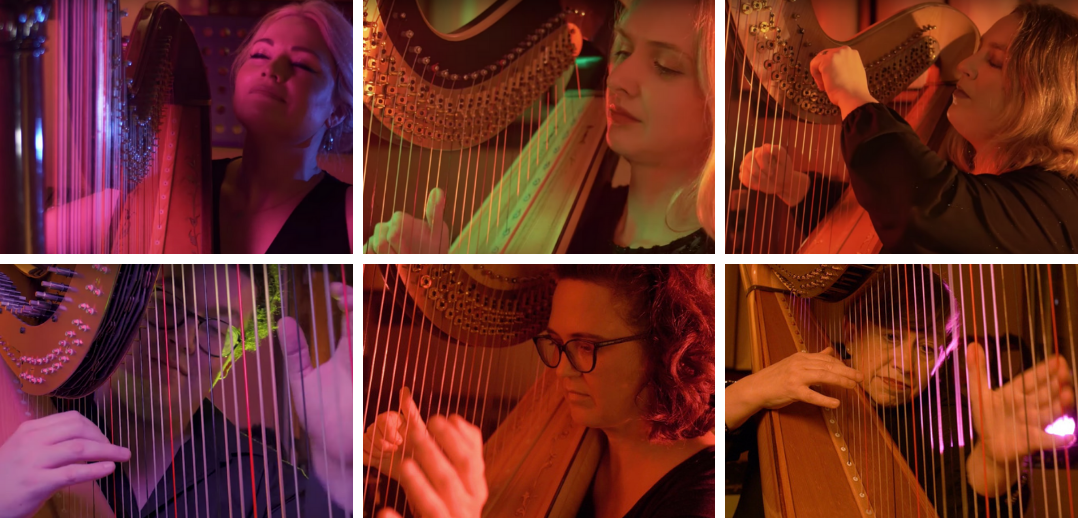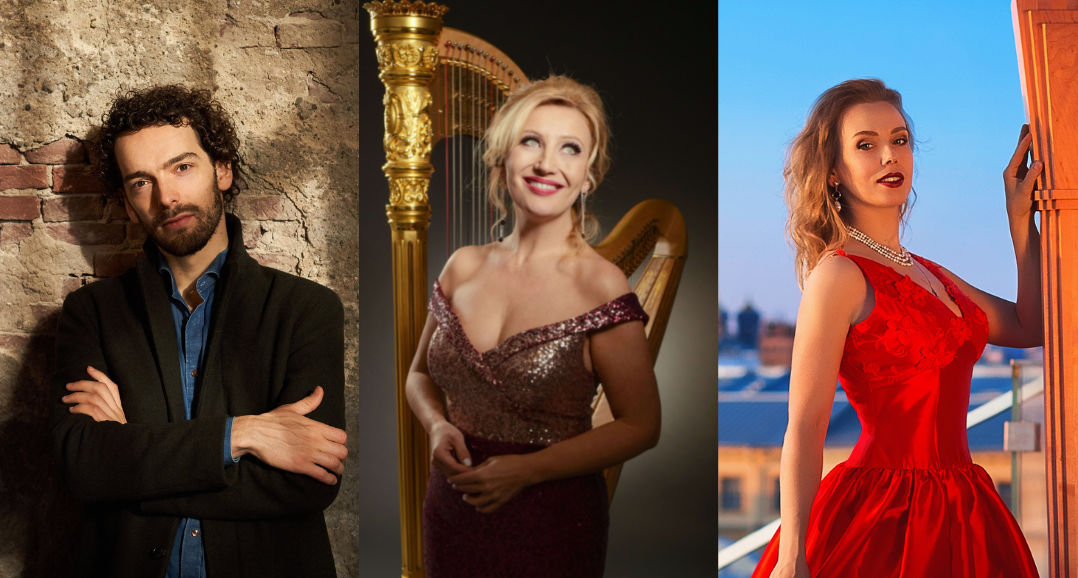Challenge the Stats (CTS) will present Sounds of the New Normal, a concert featuring the works of Black, Indigenous, and People of Color (BIPOC) composers, at 12 p.m. EDT on July 28 at the First Presbyterian Church of Atlanta. Harpist and CTS founder Angelica Hairston, cellist Khari Joyner, and harpist Brandee Younger will perform works by Connor Chee, Maurice Draughn, Florence Price, Coleridge-Taylor Perkinson, and others. We reached out to Angelica Hairston to learn more.
Tell us about your concert Sounds of the New Normal on July 28, presented by Challenge the Stats. How does this program reflect the mission of Challenge the Stats?
I’m thrilled to be joined by cellist Khari Joyner and harpist Brandee Younger in a powerful lunch-hour concert highlighting BIPOC composers and discussing ways to celebrate communities of color as we navigate a “new normal” in our nation.
Challenge the Stats exists to empower BIPOC in the classical performing arts and use music as a tool for justice. As all of us engage in more critical discussions around race and justice, I’m excited about the ways this event will center and amplify the voices of musicians and composers who have often been marginalized. It’s our hope that this event is a vehicle for all of us to take tangible steps toward equity in the arts field and within our local communities.
Tell us about the process of choosing and preparing works by BIPOC composers. Do you work with living composers? Where do you search for new pieces to learn?
A personal commitment I’ve made in my career is to highlight existing works by BIPOC composers and to support living composers in creating new works for harp. As I’ve learned more about the depths of injustice done toward Black and Native American communities from the founding of our nation, it has been of particular interest for me to amplify voices within these communities.
One highlight for me has been working directly with Diné composer Connor Chee in transcribing three of his Navajo Vocables (originally for piano) for harp solo and for harp and cello. I had the opportunity to work alongside a dear friend, Madison Symphony Orchestra principal harpist Johanna Wienhølts, in creating these transcriptions. We spent time with Connor virtually, learning more about the history of Navajo Corn Grinding Songs and the rich cultural history of vocables, which are non-lexical syllables used in Indigenous chants. The process has been richly fulfilling, and knowing the depth of context behind the work really helps in the final interpretation of these incredibly striking melodies.
The vast majority of the pieces I perform by BIPOC composers are new works. I’m fairly intentional about encouraging others in the harp community to purchase the scores, take a lesson with the composers, and directly financially support the incredible composers of our time. One example of this is composer and harpist Brandee Younger, who will be featured in the July 28th concert. After some friendly encouragement, Brandee published Shelter in Place and Essence of Ruby during the pandemic, and I was honored to give both pieces their Southeastern premiere. I truly believe that through commissioning and financially committing to the work of BIPOC composers, we can make major positive shifts in the canon of harp repertoire to create a more inclusive and equitable harp community.
What are some highlights of the program to listen for?
In addition to the world premiere of Connor Chee’s Navajo Vocables, we’ll premiere Maurice Draughn’s Deep River for Cello and Two Harps and an adaptation of Florence Price’s Adoration. Also featured are a few harp-community favorites by Latinx composer Alfredo Rolando Ortiz, and solo cello works by Black composer Coleridge-Taylor Perkinson.
The free concert, held at First Presbyterian Church of Atlanta, will welcome in-person audience members with RSVP. Listeners can also watch the livestream.
For more information, visit the Challenge the Stats website. You can also check out Hairston’s Sounding Board article from the January/February 2018 issue of Harp Column.












